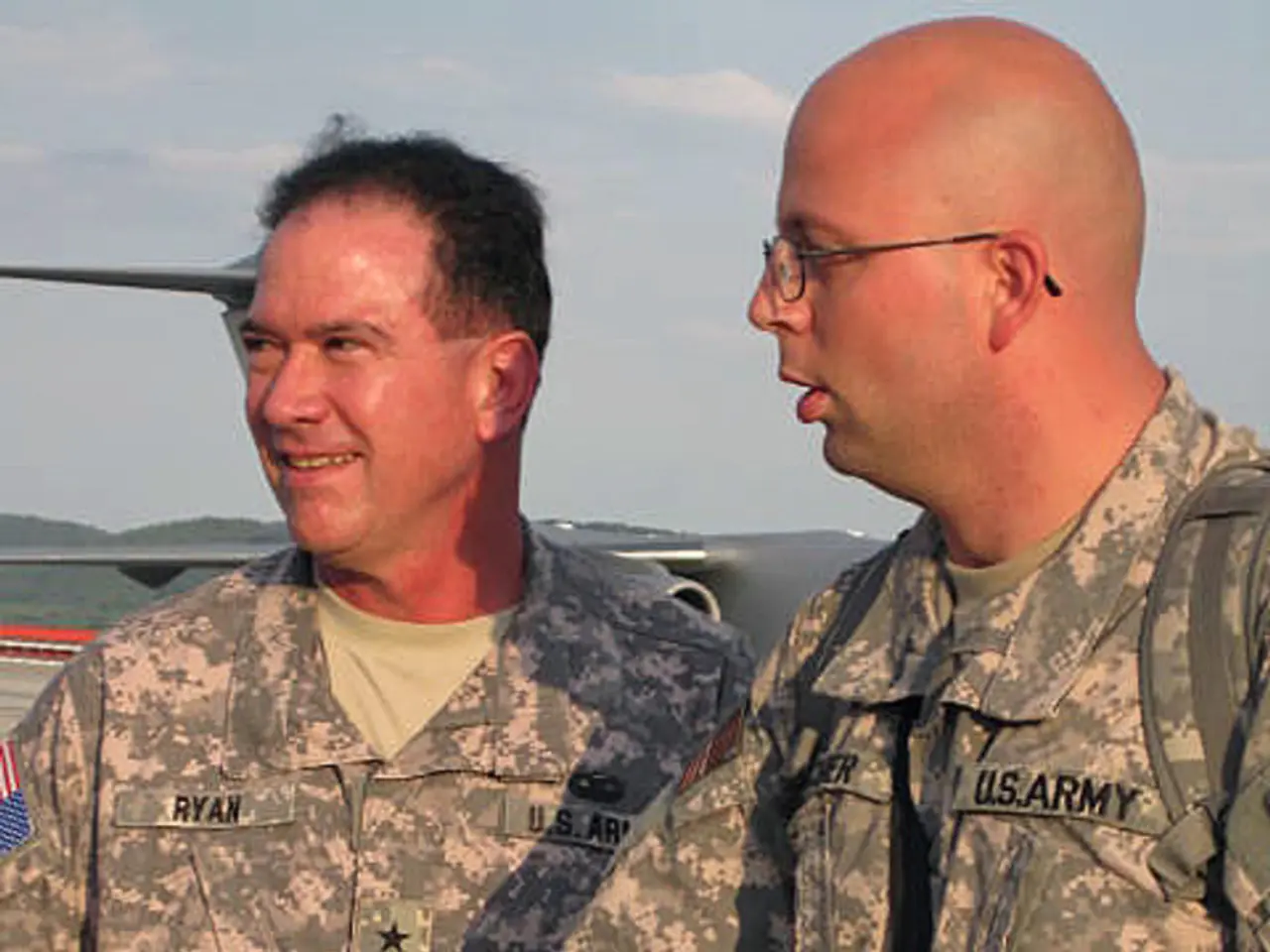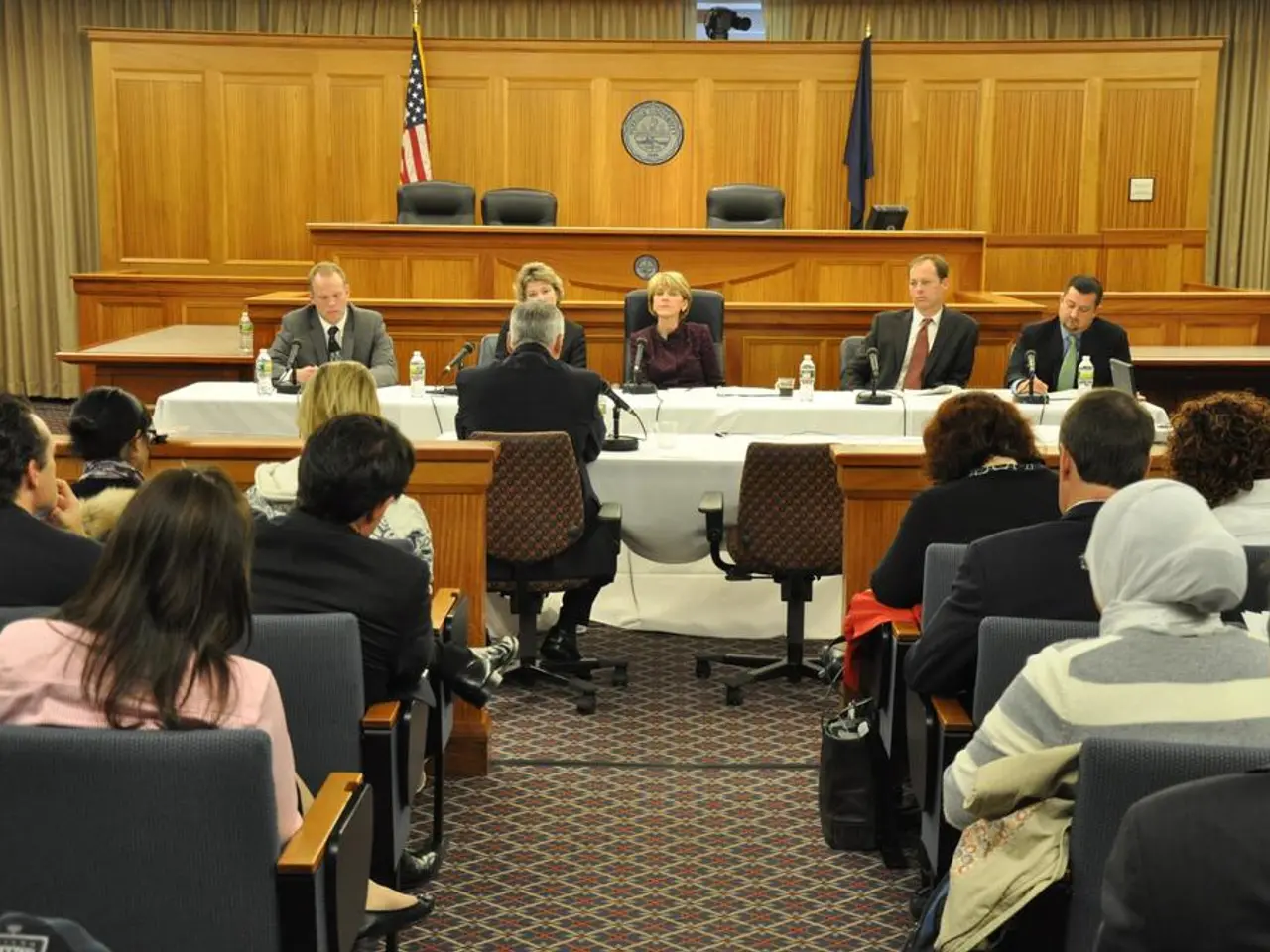Israel launches assault on Rafah, instigating outrage following rejection of recent truce agreement proposal.
In a surprising turn of events on Monday, Israeli forces launched an invasion of Rafah amidst Hamas announcing their acceptance of a ceasefire agreement proposed by Qatar and Egypt. The move comes despite repeated objections from the international community, particularly the US, to a full-scale incursion into the southern Gaza city.
The invasion swiftly resulted in the seizure of the Rafah border crossing, which links Gaza with Egypt, causing concern over potential disruptions in humanitarian aid and the worsening famine conditions in northern Gaza. This attack took place amidst ongoing negotiations for a ceasefire, with the Biden administration consistently pushing for minimizing harm to the over one million Palestinians in Rafah.
On Tuesday, the White House National Security Council spokesperson John Kirby labeled the attack as a "limited operation," emphasizing that it was not the full-scale invasion the US had warned Israel against. However, the Israeli rejection of the ceasefire accepted by Hamas dashed hopes for a swift conclusion to the conflict.
The US has accused Hamas of making ambiguous statements regarding the ceasefire, expressing reluctance to fully endorse the deal. According to different accounts, the changes made to Israel's original ceasefire proposal, which Hamas seemingly approved, may have not been fully communicated to Israel by the US. It's unclear if this perceived miscommunication will impact the ongoing negotiations.
The ceasefire agreement included a hostage exchange, with Hamas agreeing to release all remaining Israeli hostages in exchange for the release of Palestinians in Israeli custody. These negotiations reportedly took place over several days in Cairo and Doha, with Egyptian and Qatari mediators and the CIA director William Burns involved. Despite initial reluctance from Israel, a ranking delegation is set to travel to Egypt to continue negotiations and possibly reach a mutually acceptable agreement.
With Egypt reportedly growing increasingly frustrated with Israel's refusal to accept the ceasefire, the conflict in Rafah continues to pose significant challenges for regional stability and humanitarian efforts in Gaza. The US, as a key mediator and ally of both Israel and the Palestinian territories, plays a crucial role in finding a lasting and peaceful resolution to the conflict.
- The Rafah border crossing, connecting Gaza to Egypt, is a source of concern due to its seizure by Israeli forces, as it could potentially disrupt humanitarian aid and exacerbate famine conditions in northern Gaza.
- Ongoing negotiations for a ceasefire in Gaza between Israel and Hamas are being closely watched, with the Biden administration advocating for minimizing harm to over one million Palestinians in Rafah.
- The White House has labeled the Israeli attack as a "limited operation," but the rejection of the ceasefire by Israel has dampened hopes for a swift resolution to the conflict.
- The ceasefire agreement, which includes a hostage exchange between Hamas and Israel, was negotiated over several days in Cairo and Doha, with the involvement of Egyptian, Qatari mediators, and the CIA director, William Burns.
- Egypt's growing frustration with Israel's refusal to accept the ceasefire could pose significant challenges for regional stability and humanitarian efforts in Gaza, with the US, as a key mediator, heavily involved in finding a lasting and peaceful resolution to the conflict.








